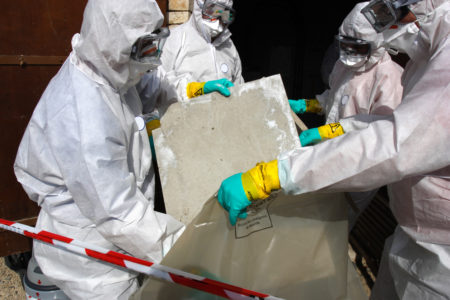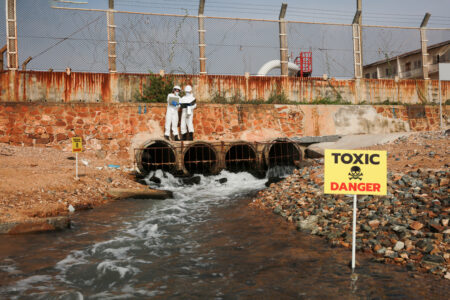
Share On Social!
Once, asbestos was a major health concern — it exposed millions of Americans to harmful toxins through construction materials, home insulation, and talcum powder-based items.
Now, despite a reduction in its reach and impact over the years, the mineral is making headlines again. EPA rollbacks and discoveries of asbestos in consumer products have brought asbestos back on the minds of citizens and lawmakers.
New Jersey (20.4% Latino) state legislators took steps to protect their constituents through bill A 4416, which bans the sale or distribution of products containing asbestos.
“There is absolutely no reason why any New Jerseyans should be at risk of asbestos exposure,” state assembly member Lisa Swain told TAPinto. “While the current Administration in Washington may be okay with rolling back environmental health standards that protect so many Americans, here in New Jersey we are not, and this bill ensures we will stay proactive in protecting our residents.”
What Does the Bill Do?
Governor Phil Murphy signed A 4416 into law on May 14, following the unanimous 35-0 Senate vote in March.

This legislation not only prohibits the use of asbestos in all products, but it also gives the state’s Department of Environmental Protection (DEP) powers to enforce this regulation. It will take effect in September of this year.
DEP officials can enter into any businesses in the state to perform routine checks and verify compliance. Those who do not comply can face fines up to $2,500, and be subject to a DEP injunction.
The ban will make up for years of asbestos being a significant factor in state production, according to attorney Steven Kazan, who has defended victims of asbestos exposure.
“New Jersey was a major center of asbestos product manufacture for decades, so it is most fitting that its legislature is taking the lead nationwide in the effort to protect its citizens from the EPA’s folly in expanding permissible use of deadly asbestos in the United States,” Kazan said.
Why Should Anyone Care?
Asbestos is a dangerous mineral that can cause a litany of health issues in exposed individuals.
State legislators pointed to numerous concerns when describing the need for such a bill in its summary.
“Exposure to asbestos increases the risk of developing lung disease,” the bill states. “In general, the greater the exposure to asbestos, the greater the chance of developing harmful health effects, such as: lung cancer; mesothelioma, a rare form of cancer that is found in the thin lining of the lung, chest, abdomen, and heart; and asbestosis, a serious progressive, long-term, non-cancer disease of the lungs.”
Latinos are at risk.
Specifically, in cosmetic products, which have been found with asbestos contamination, spending is on the rise — increasing their chance of exposure and harm.

Moreover, other talcum-based products, such as baby powders, have also been contaminated.
However, state officials said the reason this bill was necessary is due to the EPA’s disregard to observe exposure-caused harm.
“It is our responsibility to best protect the health of our residents,” state senator Robert Karabinchak told TAPinto. “There is no benefit to the people of New Jersey to allow their potential exposure to toxins.”
Asbestos regulation reduction follows the agency’s current trend of rolling back environmental protections. Since coming into power, the current administration has led a number of efforts to decrease defensive measures for clean water and air.
Submit a comment to the EPA, urging them not to enact their groundwater loophole rule today!
Editor’s Note: This article is part of a collaboration between Salud America! and the Hoffman Toxicant-Induced Loss of Tolerance (TILT) program at UT Health- San Antonio. To find out if you are TILTed due to exposure to everyday foods, chemicals, or drugs, take a self-assessment or learn more about TILT.
Explore More:
Chemical & Toxic ExposureBy The Numbers
1
Quick Survey
Can help you find out how chemically sensitive you are



